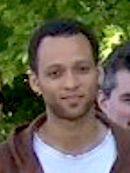Luidnel Maignan
LACL, UPEC, Créteil
https://www.researchgate.net/scientific-contributions/Luidnel-Maignan-18307163
Date(s) : 07/01/2021 iCal
10 h 30 min - 11 h 30 min
We want to replace categories, functors and natural transformations by categories, open functors and open natural transformations. The adjective open is added here to mean that some external information is taken into account. The origin of this will is that we needed to generalize the powerset monad in a setting where sets are replaced by categories in our on so-called global transformations, in order to handle non-determinism.
The first tries was to replace objects by sets of objects and morphisms by some sort of sets of morphisms. However, we found convincing examples to think that multiplicities was important, and multiplicities came from the different ways a result could be obtained.
So to take into account the multiplicities was the same as to tag »each output with the reason » of its occurrence. These « reasons » form our external information.
All in all, this information can be viewed as the result of a choice, either from a random source, from an external scheduler, or simply from another part of the system that is not modeled but just taken as secondary input instead (e.g. Field-Based Cellular Automata,
Random Cellular Automata). Although it seemed clear that some settings should already exist, there were questions on small details in each possible setting. In such a case, it is a good idea to first formalize the intuition as it is, and then try afterward to map it in other settings in a precise formal way to fix those details. This is exactly the purpose of this paper: to formelize open functors directly, and then see how presheaves, monads, fibrations, and distributors (also called profunctors) show up or compare.
This is a work in progress with Alexandre Fernandez and Antoine Spicher.
Catégories

